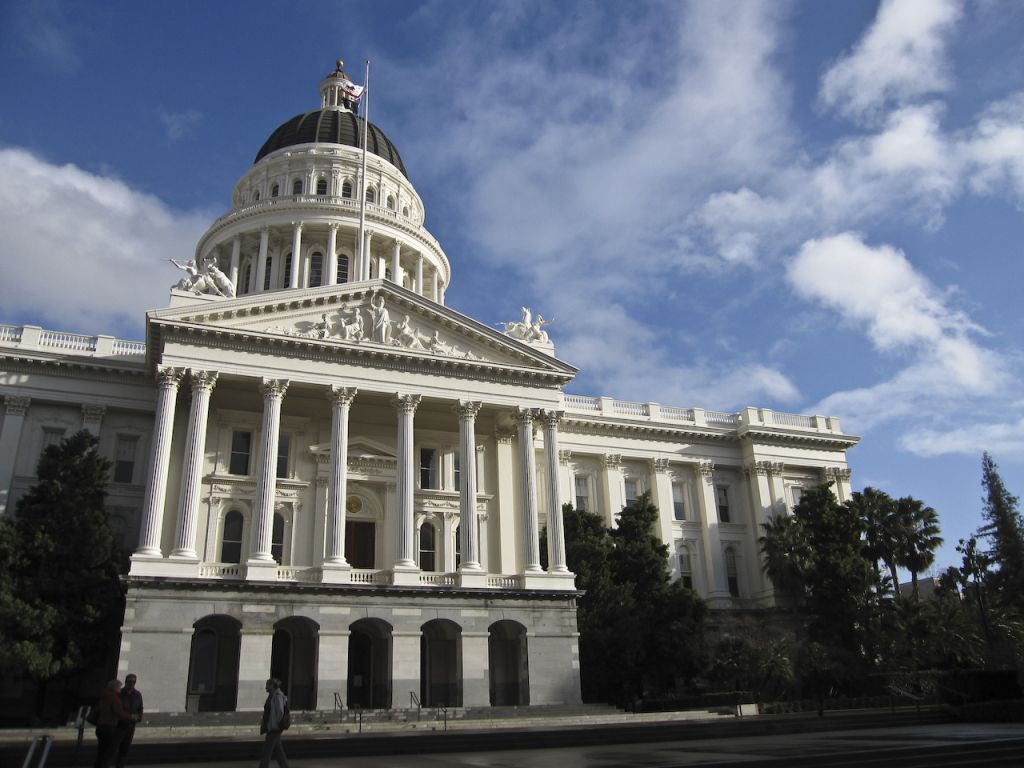California faces revenue surplus, persistent debt
 California’s state auditors recently released an unflattering look at the state’s finances, part of their annual report. Issued several years in arrears, the assessment showed nearly $2 billion in deficit spending for the 2011-2012 fiscal year, piling more borrowed money onto what Gov. Jerry Brown has called a figurative “wall of debt.”
California’s state auditors recently released an unflattering look at the state’s finances, part of their annual report. Issued several years in arrears, the assessment showed nearly $2 billion in deficit spending for the 2011-2012 fiscal year, piling more borrowed money onto what Gov. Jerry Brown has called a figurative “wall of debt.”
“The report, which covers the fiscal year ending June 30, 2012, says that the state’s negative status — all of its assets minus all of its liabilities — increased that year, largely because it spent more than it received in revenue,” the Sacramento Bee reported. “About half of the $127.2 billion in accumulated red ink came from the state’s issuing general obligation bonds and then giving the money to local governments and school districts for public works projects, the auditor pointed out. The assets built with the bonds remain on local balance sheets while the bonded debt accrues to the state.”
Wrestling with debt
Over the past several years, however, Gov. Brown’s effort to keep debt from ballooning has made something of an impact. “California’s debt service ratio is on track to drop below 5 percent over the next several years,” as the Bee observed last month, citing the state’s nonpartisan legislative analyst:
“The ratio, an indicator of the state’s debt burden, reflects how much general fund revenue and transfers go to pay off past borrowing. It rose to 6 percent in the late 2000s after voters approved tens of billions of dollars in borrowing for roads, schools and parks. But the ratio has declined to about 5 percent as general fund revenue grew, debt was refinanced, and the payback cost for some borrowing, such as transportation, was shifted to special funds.”
Nevertheless, California’s fluctuating income has remained a steady concern. “Brown’s administration urged caution in the face of sluggish state revenue in the summer and fall. October tax collections were $381 million, or 4.7 percent, below projections,” the Associated Press recalled in November, when revenue was “$1 billion below projections since the administration’s most recent forecast in May.”
Next year, the legislative analyst predicted, California will pull in a surplus of nearly $3 billion. But the specter of public pensions has not been diminished by the estimate. “The Governmental Accounting Standards Board and Moody’s, a major bond credit rating house, have been pushing states and localities to include unfunded retiree obligations in their balance sheets and were they to be added to California’s, it could push its negative net worth down by several hundred billion dollars,” the Bee cautioned.
String of challenges
The auditors’ budget report continued a critical streak this year. Earlier this month, they found that “at least 184 complaints against registered nurses, which include practitioners and specialists, were still waiting to be assigned to nursing board investigators,” as ABC 10 recalled. “About 40 percent of those complaints involve ‘high-priority allegations’ such as patient death or criminal activity. Complaints come from a variety of sources, such as patients and the media.” (Nursing board oversight officials have insisted all complaints are now being reviewed.)
Before that, another audit targeted a key component of the state’s criminal justice bureaucracy. “In an August report, the California State Auditor examined how inadequate oversight had led to a badly compromised database” collecting gang membership records, according to the San Francisco Chronicle. State agencies, the auditors concluded, “lacked adequate support for 13 of 100 people we reviewed in CalGang and for 131 of 563 of the CalGang criteria entries we reviewed,” the Chronicle continued, noting the auditors “also found privacy violations, a failure to purge old records and transparency problems.”
And last month, they hit out at the state’s public school system for falling short on books. “Sampling school libraries in Sacramento, San Bernardino and Tulare counties, California state auditor Elaine M. Howle found schools with no librarians, non-teaching staff providing library services and lack of oversight of library services,” the San Jose Mercury News reported.
Related Articles
Assembly speaker shelves single-payer health bill
SACRAMENTO – Assembly Speaker Anthony Rendon, D-Paramount, an avowed supporter of single-payer health care, nevertheless announced last week that he
Late ballots keep controller’s race cliffhanger
As more Californians turn to absentee voting, election officials have seen an uptick in the number of potentially valid ballots
Deferral of federal funds casts fresh doubt on California high-speed rail
The new administration in Washington, D.C., has added another hurdle to California’s already difficult road to high-speed rail. Drawing




